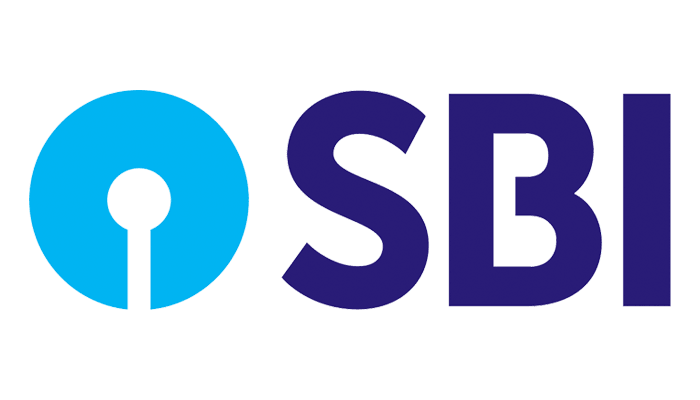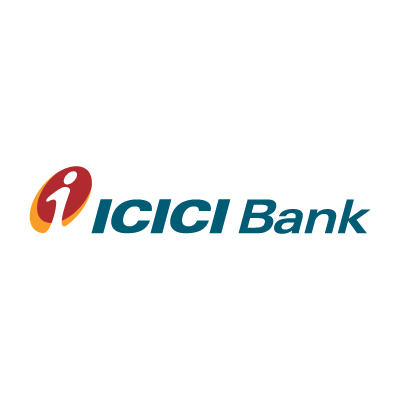Fixed Deposit Rates in India
for NRI in 2020
Looking for Safe and smart Investment to grow your savings back home in India,
NRI FD is the best choice
BEST FIXED DEPOSIT RATES IN INDIA FOR NRI
INVESTMENTS IN 2020

Why Invest in a FD or Fixed Deposit ?
Fixed deposits are undoubtedly one of the best ways to secure our money. They not only help us to save money but also provide us with a substantial amount of interest on that money. As a result of banks offering competitive fixed deposit rates in India, all depositors – local residents as well as NRIs – get a good Return on Investment over a fixed tenure. The fixed deposit scheme allows customers to only deposit the amount once at the time of opening the account.
The Foreign Exchange Management Act (FEMA) does not allow Non-Resident Indians (NRIs) to have local resident accounts in India. But do not worry, in spite of that, an NRI still has a number of platforms to open investment accounts in India. NRIs have been provided with various fixed deposit options to choose from. There are majorly 4 types of fixed deposits that are offered by banks for Non-Resident Indians. We shall discuss them shortly. Thus, a fixed deposit account is a financial service offered by most banks in the country for domestic citizens as well as Non-Resident Indians (NRIs).
What are the eligibility criteria for NRI fixed deposit accounts?
To open a fixed deposit account in India, a Non-Resident Indian needs to have the following documents:
Passport –
NRIs should keep in mind to have their passport handy if they wish to open a fixed deposit account in India. The passport of the investor should show the name, address, date of birth, photograph and signature.
Visa/ Work permit –
Visa documents should be presented by the investor which should contain the work permit, permanent resident visa, resident permit as well as employment visa along with other requested documents.
What are the benefits of opening a fixed deposit account for NRIs?
NRIs have been provided with more than a few fixed deposit options in India. But before you go ahead and create one, it is quite essential to know the benefits of a fixed deposit account
Some of the advantages are given below:
- The investments made in an FD are safe and highly secure for NRIs.
- Fixed deposits are an ideal option to deposit and save money earned abroad
- 2 types of FDs for NRIs are exempted from tax
- Overdraft and loan facilities can be taken on fixed deposit accounts
- An option of nomination is allowed for fixed deposit uh account
- Offers higher rate of returns
What are the KYC formalities that Non-Resident Indians have to follow?
It is important for NRIs to carry the original documents for KYC formalities. Know Your Customer (KYC) formalities include filling the application form and submitting required documents, such as:
- Proof of overseas presence
- Identity proof
- Address proof
- Photographs
NRIs can of course open fixed deposit accounts while traveling to India. They can also open the accounts while being in the UAE. Some Indian banks have their representative offices in the UAE. The representative offices may ask the proposed account holder to visit their office or send a representative to collect the completed form as well as the required documents.
Apart from this, some Indian banks also provide an option to download the requisite forms from their websites along with the list of required documents. All documents need to be attested by any of the following authorities:
- Notary public
- Any court of law
- Magistrate
- Judge
- The local banker with bank seal (along with the name, designation, employee code of the person doing attestation) or the Indian Embassy / Consulate General of the country.
What are the various fixed deposit options available to an NRI?
In spite of the fact that an NRI is not permitted to have a local resident account in India, he/she is still provided with more than just a few platforms to open investment accounts in India. There are usually 4 main platforms available to an NRI for opening a fixed deposit account.
The 4 options to choose from are as follows:
- Fixed Deposit under Non -Resident (Ordinary) Rupee Account (NRO Account)
- Fixed Deposit under Non-Resident (External) Rupee Account (NRE Account)
- Fixed Deposit under Foreign Currency Non-Resident (FCNR) Account
- Fixed Deposit under Resident Foreign Currency (RFC) Account
Fixed Deposit under Non -Resident (Ordinary) Rupee Account (NRO Account)
– A Non-Resident Ordinary (NRO) Account is a popular way for many Non-Resident Indians (NRIs) to manage their deposits or income earned in India such as dividends, pension, rent, etc. This account allows you to receive funds in either Indian or foreign currency. However, only Indian currency can be withdrawn as NRO Accounts are kept in Indian currency and cannot be freely repatriated into any foreign currency.
Fixed Deposit under Non-Resident (External) Rupee Account (NRE FD Account)
– An NRE account is a bank account opened in India in the name of an NRI, to park his foreign earnings. NRE accounts are exempt from tax. Neither the balance nor the interest earned on these accounts is taxable. Thus, an NRE account can be opened if you want to transfer your foreign income to India and want to avoid taxation liabilities. This account also proves to be a great way to invest earnings in instruments such as fixed deposits and stocks, and earn returns.
Fixed Deposit under Foreign Currency Non-Resident (FCNR) Account
– If you are an NRI and wish to maintain a Fixed Deposit Account in India, you can opt for an FCNR Account that allows you to save money earned overseas in Foreign Currency. The account could be held in a choice of nine different foreign currencies, some of which are US Dollars, Pounds Sterling, Euro, Japanese Yen, Australian Dollars and Canadian Dollars. FCNR Accounts are an excellent investment option for NRIs if you wish to retain your money in foreign currency and earn good returns at the same time. Since your money will be held in foreign denomination, you can be saved the risk of exchange rate fluctuations. This also ensures that you earn higher, risk-free returns.
Fixed Deposit under Resident Foreign Currency (RFC) Account
– RFC accounts (Resident Foreign Currency) are bank accounts that can be maintained by resident Indians in foreign currency. These accounts are especially useful for Non-Resident Indians (NRI) who return to India and would like to bring back foreign currency from their overseas bank accounts. You can open an RFC account if you return to India permanently after residing abroad for a continuous period of one year or more. A fixed deposit under an RFC account is beneficial because the interest earned in this FD is fully repatriable.
Top 5 fixed deposits for NRIs for November 2020
The following banks offer the best interest rates for NRIs who wish to open a fixed deposit account in November 2020:
State Bank of India Fixed Deposit

The State Bank of India (SBI) offers a wide range of customized fixed deposit products for Non-Resident Indians (NRIs) to help them earn good returns while enjoying other benefits such as tax exemptions on certain FDs. The various types of schemes offered by SBI for NRIs include Non-Resident External (NRE) account, Non-Resident Ordinary (NRO) account, Foreign Currency Non-Repatriable (FCNR) account, and Resident Foreign Currency (RFC) account. NRIs can open NRE fixed deposit accounts, NRO fixed deposit accounts, RFC, and FCNR term deposits. The interest rates of SBI fixed deposits were revised on February 28, 2018. Interest rates changed for all deposit tenures and types, including for SBI Fixed Deposit for NRI. NRE Deposits range up to 6.85% p.a. for a tenure between 5 years and 10 years while NRO Deposits are at 6.85% p.a. for a maturity period ranges within 5 years and 10 years.
HDFC Bank Fixed Deposit

HDFC Bank offers the best Fixed Deposit (FD) rates in the industry on all Non-Resident Indian (NRI) FDs in India. The different options available are Non-Resident External (NRO), Non-Resident Ordinary (NRO) and Foreign Currency Non-Repatriable (FCNR) deposit accounts. Before applying for an HDFC NRE Fixed Deposit, you can calculate how much you will earn by using the fixed deposit calculator. The maximum NRE rate of interest offered by HDFC Bank is 7.40% while the highest NRO fixed deposit rate is also 7.40%.
ICICI Bank Fixed Deposit

ICICI Bank offers an extensive range of investment options for Non-Resident Indians (NRIs). The bank offers Non-Resident External (NRE), Non-Resident Ordinary (NRO), Foreign Currency Non-Repatriable (FCNR) as well as Resident Foreign Currency (RFC) deposit schemes. The Non-Resident External (NRE) Deposit rates for ICICI Bank within the range of 6.90% p.a. and 7.50% p.a. The ICICI Bank Non-Resident Ordinary (NRO) FD rates start from 4.00% p.a. to 7.50% p.a. For NRI Fixed Deposit ICICI Bank offers the highest interest rate of 7.50% p.a. for a tenure of above 2 years to 3 years. One can also get a maximum rate of 7.50% p.a. on NRO deposits for a maturity period between 2 years and 3 years.
Axis Bank Fixed Deposit

Axis Bank offers Term Deposit schemes for Non-Resident Indians (NRIs). Fixed Deposits (FDs) are available as Non-Resident External (NRE) Deposits, Non-Resident Ordinary (NRO) FDs and Foreign Currency Non-Resident (Bank) Deposit (FCNR (B)). Remember, Fixed Deposit Plus FDs cannot be prematurely withdrawn. Axis Bank NRI Fixed Deposit rates are one of the best in the market. The highest NRE Fixed Deposit rate as well as the highest NRO Term Deposit rate are both 6.50% p.a.
Federal Bank Fixed Deposit

Federal Bank offers its best FD rate of 5.85% on term deposits for a tenure of 1 year 2 months 25 days to 1 year 2 months 25 days. Current Federal Bank Fixed Deposit rates range from 3.50% to 5.85% and from 4.00% to 6.35% for senior citizens. Fixed Deposit rates of Federal Bank are a function of many factors such as monetary policies of RBI, economic growth rate, credit demand and liquidity position of the bank. Thus, Federal Bank FDs are one the best investment option available for depositors who are looking to invest in a fixed income instrument and earn higher returns than a savings account.
List of all available FD options for NRI’s
When it comes to investments, fixed deposits are the most preferred option as they offer guaranteed returns. Hence, we have brought to you a compiled list of the FD interest rates offered by various banks that operate in India.
| Bank in India | Fixed Deposit Interest Rates (per annum) | Senior Citizen FD Rates (per annum) |
|---|---|---|
| SBI Fixed Deposit | 2.90% – 5.40% | 3.40% – 6.20% |
| HDFC Bank Fixed Deposit | 2.75% – 5.50% | 3.25% – 6.00% |
| ICICI Bank Fixed Deposit | 2.75% – 5.50% | 3.25% – 6.00% |
| Axis Bank Fixed Deposit | 2.75% – 5.50% | 2.75% – 6.15% |
| ICICI Home Finance Fixed Deposit | 6.50% – 7.00% | 6.75% – 7.25% |
| Kotak Bank Fixed Deposit | 2.75% – 5.25% | 3.25% – 5.75% |
| IDFC First Bank Fixed Deposit | 4.00% – 7.25% | 4.50% – 7.75% |
| Bank of Baroda Fixed Deposit | 2.90% – 5.30% | 3.40% – 5.80% |
| Citibank Fixed Deposit | 2.75% – 4.00% | 3.25% – 4.50% |
| IDBI Bank Fixed Deposit | 3.00% – 5.80% | 3.50% – 6.40% |
| Indian Bank Fixed Deposit | 3.05% – 5.50% | 3.55% – 6.00% |
| Indian Overseas Bank Fixed Deposit | 3.50% – 5.45% | 4.25% – 6.20% |
| OBC Fixed Deposit | 3.00% – 5.30% | 3.50% – 5.80% |
| PNB Fixed Deposit | 3.00% – 5.30% | 3.50% – 5.80% |
| HDFC Fixed Deposit | 6.56% – 6.66% | 6.81% – 6.91% |
| PNB Housing Finance Fixed Deposit | 7.00% – 7.35% | 7.25% – 7.60% |
| Allahabad Bank Fixed Deposit | 3.05% – 5.50% | 3.55% – 6.00% |
| Andhra Bank Fixed Deposit | 3.50% – 5.45% | 4.00% – 5.95% |
| Bank of India Fixed Deposit | 3.50% – 5.50% | 3.50% – 6.15% |
| Bank of Maharashtra Fixed Deposit | 3.00% – 5.00% | 3.50% – 5.50% |
| Canara Bank Fixed Deposit | 3.00% – 5.50% | 3.00% – 6.00% |
| Central Bank of India Fixed Deposit | 3.00% – 5.15% | 3.50% – 5.65% |
| Punjab and Sind Bank Fixed Deposit | 3.50% – 5.55% | 4.00% – 6.05% |
| UCO Bank Fixed Deposit | 3.65% – 5.50% | 3.90% – 6.00% |
| Union Bank of India Fixed Deposit | 3.50% – 5.45% | 4.00% – 5.95% |
| United Bank of India Fixed Deposit | 3.00% – 5.30% | 3.50% – 5.80% |
| Syndicate Bank Fixed Deposit | 3.00% – 5.50% | 3.00% – 6.00% |
| Yes Bank Fixed Deposit | 5.00% – 7.00% | 5.50% – 7.75% |
| Dhan Laxmi Bank Fixed Deposit | 3.50% – 5.85% | 4.00% – 6.35% |
| Bajaj Finance Fixed Deposit | 6.90% – 7.10% | 7.15% – 7.35% |
Conclusion
Thus, a fixed deposit is a financial tool that lets you earn on your savings over a certain period of time. Under the fixed deposit scheme, the investor deposits a certain amount of money into the account for a period of time and earns interest on the same. There are different types of fixed deposit accounts including senior citizen fixed deposits and NRI fixed deposit accounts. Remember that an NRI fixed deposit account will earn you a higher rate of interest than a normal savings account.
Another important factor to keep in mind if you are considering opting for a fixed deposit account is that currently, small finance banks are offering higher interest rates than commercial banks. While some customers may be more comfortable with commercial banks than small finance banks, they should note that, like commercial banks, depositors in Small Finance Banks are also covered under the depositor insurance program of Deposit Insurance and Credit Guarantee Corporation (DICGC). This means that bank deposits of up to Rs. 5 lakh, including fixed, savings, current and recurring deposits, per depositor per bank, are covered by insurance, in the event of bank failure for small finance banks as well as commercial banks. The depositors are covered for the same amount with both small finance banks and commercial banks; hence, the risk of investing in a fixed deposit remains the same for both. We would, therefore, recommend customers to choose a fixed deposit that offers the highest interest rate, whether it’s from a commercial bank or a small finance bank.
Frequently Asked Questions (FAQs) about NRI FD’s in India
Which bank gives the highest interest for NRI FDs ?
The SBI Fixed Deposit for NRI offers one of the highest interest rates as of 2020. The interest rates offered by the bank, depending on the tenure bracket, rage from 5.75% per annum all the way to 6.85%.
Can NRI have fixed deposits in India?
Yes. even though the Foreign Exchange Management Act (FEMA) does not allow Non-Resident Indians (NRIs) to have local resident accounts in India, an NRI still has a number of platforms to open investment accounts in India. NRIs have been provided with various fixed deposit options to choose from
Which bank is good for NRE fixed deposit in India?
The HDFC NRE Fixed Deposit has quite high rates of return that can extend up to as high as 7.40% per annum. Both DCB Bank and Yes Bank are also good for NRE fixed deposit in India. Their interest rates range from 6.75% to 7.35% depending on the time period.
Is NRE FD a good investment for Indian Expats in UAE?
Yes, if you want secured investment without losing the principal amount then NRE fixed deposit is the best option. The best part is interest earned is tax-free on such deposits. To know your exact returns, you can always use a fixed deposit calculator.
Which bank is the best for NRI fixed deposit 2020?
In 2020, for NRI fixed deposit ICICI Bank is at the top of its game. The Non-Resident External (NRE) Deposit rates for ICICI Bank are within the range of 6.90% p.a. and 7.50% p.a. The ICICI Bank Non-Resident Ordinary (NRO) FD rates start from 4.00% p.a. to 7.50% p.a. The Axis Bank NRI fixed deposit rates and the Federal Bank fixed deposit rates are also quite good in July 2020. They offer NRE Term Deposit rates of up to 6.50% even for amounts less than Rs. 2 crores.
Which bank gives the highest interest on fixed deposits?
The highest interest rate on fixed deposits in the market is offered by Jana Small Finance Bank at 8.60% for regular FD and 9.20% for senior citizens
Which bank is the best for a fixed deposit for 5 years?
As per July 2020, IDFC Bank gives the best interest rate for a fixed deposit of 5 years. Currently, the regular FD interest rate (per annum) stands at 7.25% while the senior citizen FD interest rate (per annum) stands at a whopping 7.75%.
